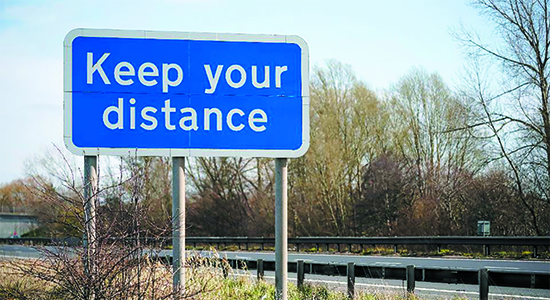
Practicing social isolation should include a schedule

By Dr. Veita Bland

One very popular term we hear over and over with the coronavirus (COVID-19) pandemic is “flattening the curve.” This public health term refers to the vital need to implement public health steps to prevent a virus from rapidly spreading from person to person. A proven way to help flatten the number of cases of a virus is by practicing social isolation. Such isolation helps decrease the immediate number of people infected and lowers the adverse impact on our health system so it can adjust and care for the people properly.
What many people may not realize is that by “flattening the curve” we are also “elongating the curve.” Barring some miraculous cure or treatment, we will still see large numbers of people infected just over a longer period. Hopefully, we will avoid the scenario of having so many people ill with limited health equipment such as ventilators.
Since we are hopefully “elongating the curve,” this social isolation will be our new normal for a while to come. So how do we learn to adjust to this new way of life?
Who thought so many people would be working from home? For those “new” to working from home, there is indeed an art to it. We’ve seen editorial cartoons of children with tied up hands and tape on their mouths as their parents work feverishly on a computer.
A few suggestions to make this a healthier endeavor ensue.
You have a schedule at work, and you would do better with a schedule at home. Now, taking care of kids simultaneously can sometimes make this a bit harder. A schedule gives order and expectations to time slots in life. It gives regularity to life.
So, unless you build in additional exercise into your schedule, limit those snacks. Have times allotted in your schedule to eat and take the time to do so. Try to decrease your carbohydrate consumption and increase eating protein, fruits and green vegetables.
Build in snack time in your schedule. Do not eat directly from the bag, carton or bottle. Portion control is important.
Avoid fried foods if possible and watch the amount of dairy, especially cheese.
Schedule playtime and take that time. Call friends, play your favorite video game, listen to a book or whatever you consider “your” play.
Avoid binge watching of programs. It does use up the time, but unless it is something you really wanted to see, it may ring empty to you.
Schedule “me” time. Use that time to regenerate in whatever manner works for you. Take a bath, read a book, meditate, exercise, practice your crafts are examples of this.
Again, stay on top of what is going on without becoming totally engrossed. You may not need to listen to the daily coronavirus updates depending how they affect you. This is an evolving event. We are all stressed by this unknown. Try to handle it with grace and find humor where you can.
Dr. Veita Bland is a board-certified Greensboro physician and hypertension specialist. Dr. Bland’s radio show, “It’s a Matter of Your Health,” can be heard live on Wednesdays, 5:30 p.m. on N.C. A&T State University’s WNAA, 90.1 FM. Listeners may call in and ask questions. The show is replayed on Sirius 142 at 5 p.m. on Wed. Email Dr. Bland at ideas@blandclinicpa.com.

